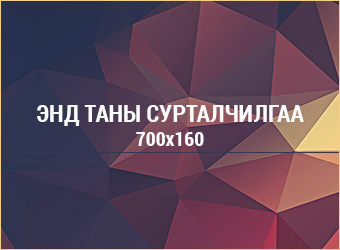Mining
Oyu Tolgoi’s Responsible Mining Index

5 min
I
When it comes to society’s expectations for a large mining operation, the traditional Mongolian view is based on its experience during the Soviet era, in particular with the Erdenet mine. A 2013 UN Working Group report states: “In mining communities, the expert was informed of expectations that hospitals and schools would be built in the soums by business enterprises, without any mention of the government’s responsibility to do so, nor with clear contractual or legal obligations for business enterprises in this regard.”[1]
Given the public‘s expectations, it is not surprising that the Oyu Tolgoi mine, which is predominantly owned by Rio Tinto, is financing, for example, the construction of a school and kindergarten complex in South Gobi Aimag. These local investments are, of course, good for those people who are directly benefiting from the investment (e.g. students), as well as for the company’s own reputation.
However, it seems that “modern-day” Mongolia needs an updated common understanding of and social agreement on what society can reasonably expect of a large-scale mining project such as Oyu Tolgoi. This understanding and agreement should be focused on the long-term national interests of a better quality of life and an economically secure future. Thus, Mongolia’s leaders should make more of an effort to reshape public perceptions beyond visible, short-term gains.
II
International responsible mining initiatives may be helpful for developing national consensus which are, at the same time, internationally acceptable and fair to all stakeholders. A new assessment on the framework for such international initiatives—the 2018 Responsible Mining Index (RMI)—includes Oyu Tolgoi along with 126 other mine sites worldwide. The 2018 RMI assesses companies and mine sites based on publicly available information, and looks at how mining companies are reflecting the issues of workers, local people, local environments, and local economies in their policies and practices.

It is evident from the RMI assessment that the Mongolian public may reasonably expect mining companies to consider national development priorities through contributions to cultivate skills and knowledge applicable to other sectors of the economy or the systematic prevention, mitigation and management of impacts on the environment (air quality, water quality and quantity, and biodiversity). Moreover, there should be financial security in the event of mine closure; disaster management and recovery; and company commitments to ensure the just transition for workers in the event of major downsizing.
III
The RMI assessment focuses primarily on company-wide policies and practices, which means the world-wide operating company that is Rio Tinto, not merely Oyu Tolgoi. The mine site assessments should enable a snapshot at the individual mining level. The assessment shows the extent to which a mine site tracks its performance on local procurement, local employment, local community and mining workers grievance mechanisms, and water quality/quantity and biodiversity management.
The assessment notes that none of the 30 mining companies covered show consistent reporting and tracking of local impacts on people and the environment. Nevertheless, Oyu Tolgoi’s performance was, together with an Argentinean mine, significantly better than other mines. Interestingly, the comparably better performance by Oyu Tolgoi stemmed from the reporting requirements set by the International Finance Corporation (IFC).
According to the RMI, Mongolia’s policy-makers possess, by international comparison, better access to information provided by a mining company, i.e. Oyu Tolgoi. The RMI assessors point out that measuring the actual level of performance was difficult to assess in a fair manner due to specific circumstances in the given location. Therefore, the RMI measures only the extent to which the mine site tracks its performances on socio-economic and environmental impacts.
IV
The RMI gives reason to ask whether the quality of the information provided by Oyu Tolgoi is independently monitored and assessed by the Government of Mongolia by taking into account the local circumstances and long-term economic, health and environmental impacts.
A 2017 report by the Intergovernmental Forum (IGF), another international responsible mining initiative, summarized that in Mongolia there was no apparent system of regular government documentation and reporting on the socio-economic impacts of the mining industry. Moreover, the IGF raised concerns over the capacity of the Mongolian government to monitor and oversee potential environmental impacts (including water quality or quantity, biodiversity impacts or mine closure).
July 2018
[1] Report of the Working Group on the issue of human rights and transnational corporations and other business enterprises on its visit to Mongolia (8-18 October 2012), A/HRC/23/32/Add.1, https://www.ohchr.org
Like the article?
Comments (0)
Upvote
0 people (0%)
Түдгэлзсэн
0 people (0%)
Дэмжээгүй
0 people (0%)










 @
jargaldefacto
@
jargaldefacto 
 @
jariunaa1
@
jariunaa1 
